Normal Songs and Poems worksheets activities for Ages 5-8
11 filtered results
-
From - To
Explore our engaging "Normal Songs and Poems Worksheets Activities" designed specifically for children aged 5-8! These interactive resources encourage literacy and creativity through the joy of music and poetry. Each worksheet features fun songs and age-appropriate poems that help young learners develop essential reading skills, rhythm, and vocabulary. Activities promote critical thinking as children listen, read, and respond to lyrical stories. Ideal for classroom or home use, these worksheets foster a love for language through playful learning. Join us in nurturing your child's educational growth as they discover the magic of songs and poems! Perfect for early grade teachers and parents alike!
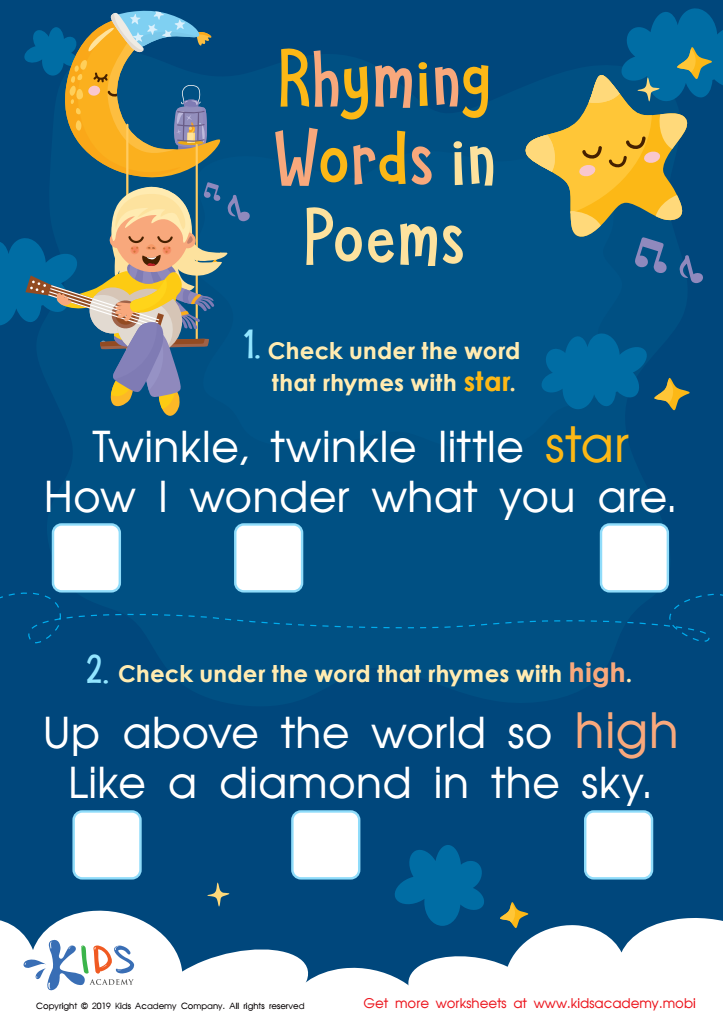

Rhyming Words in Poems Worksheet
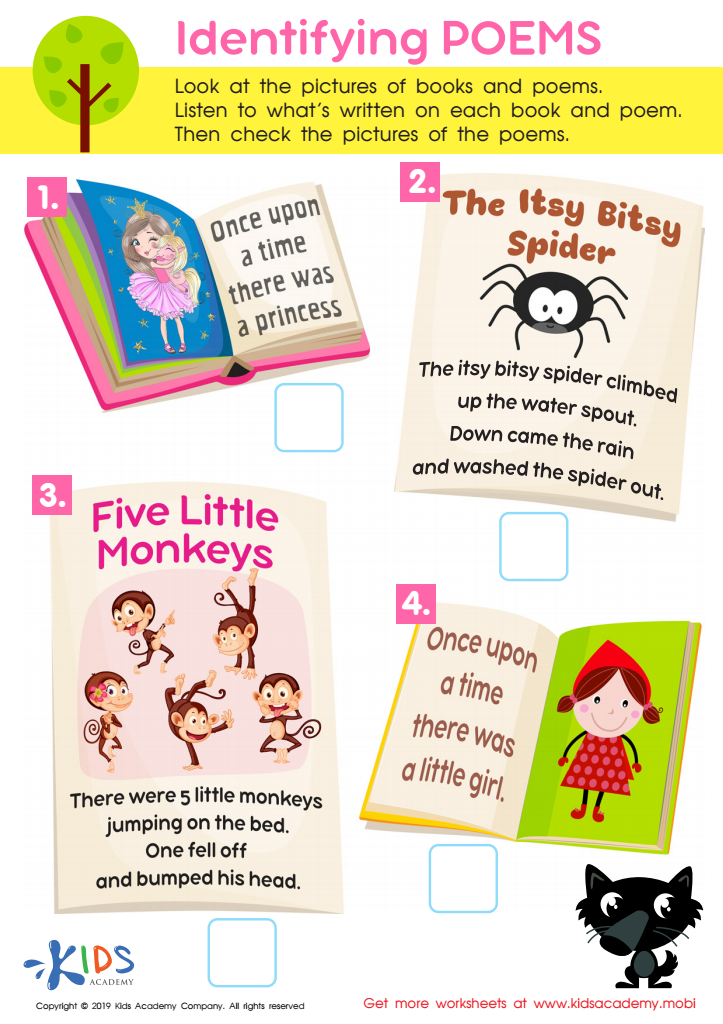

Identifying Poems Worksheet
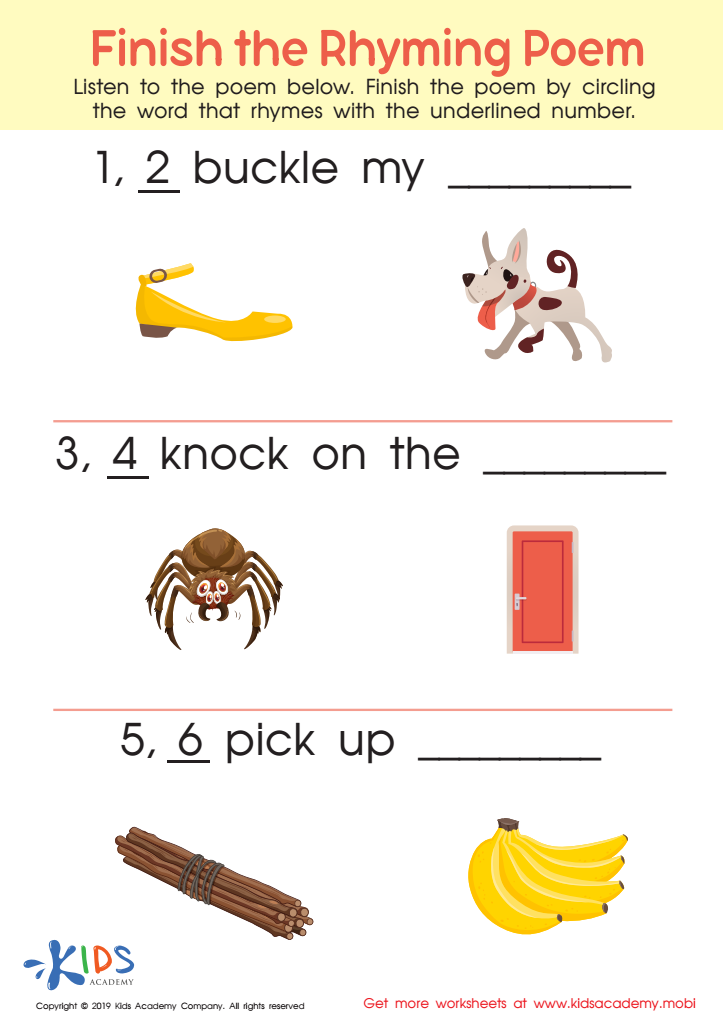

Finish Rhyming Poem Worksheet
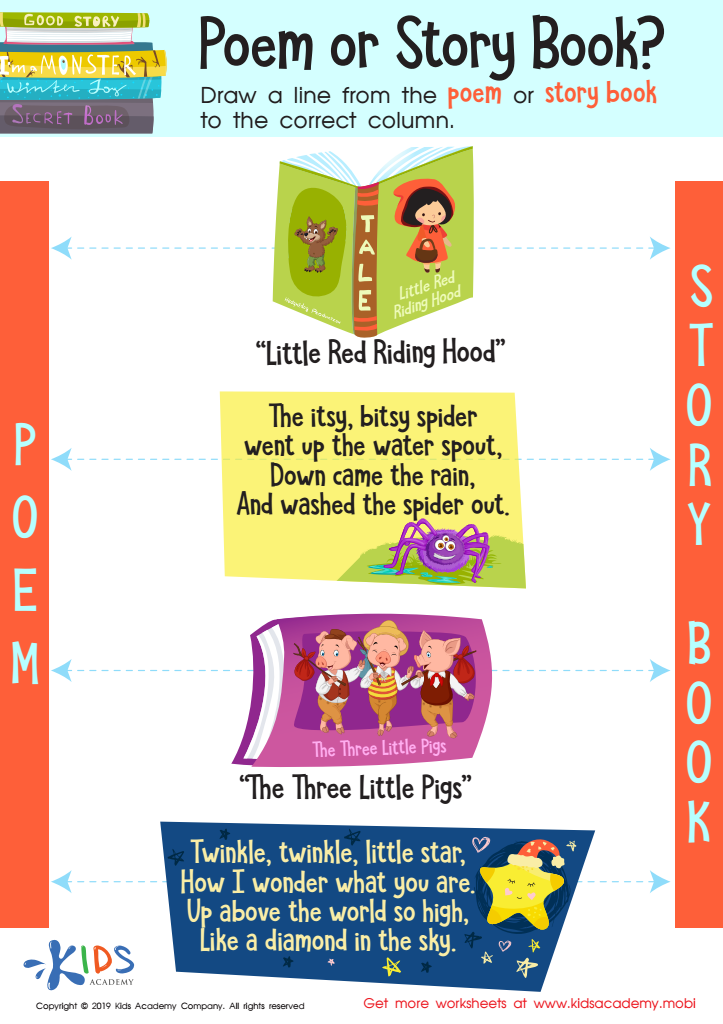

Poem or Story Book? Worksheet
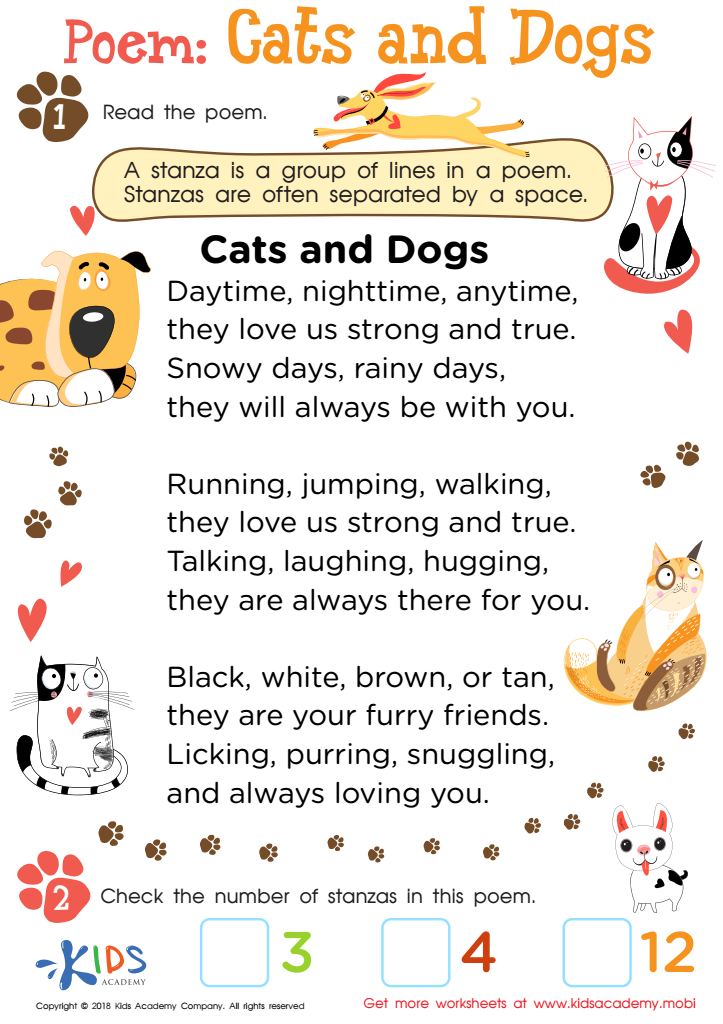

Poem: Cats and Dogs Worksheet
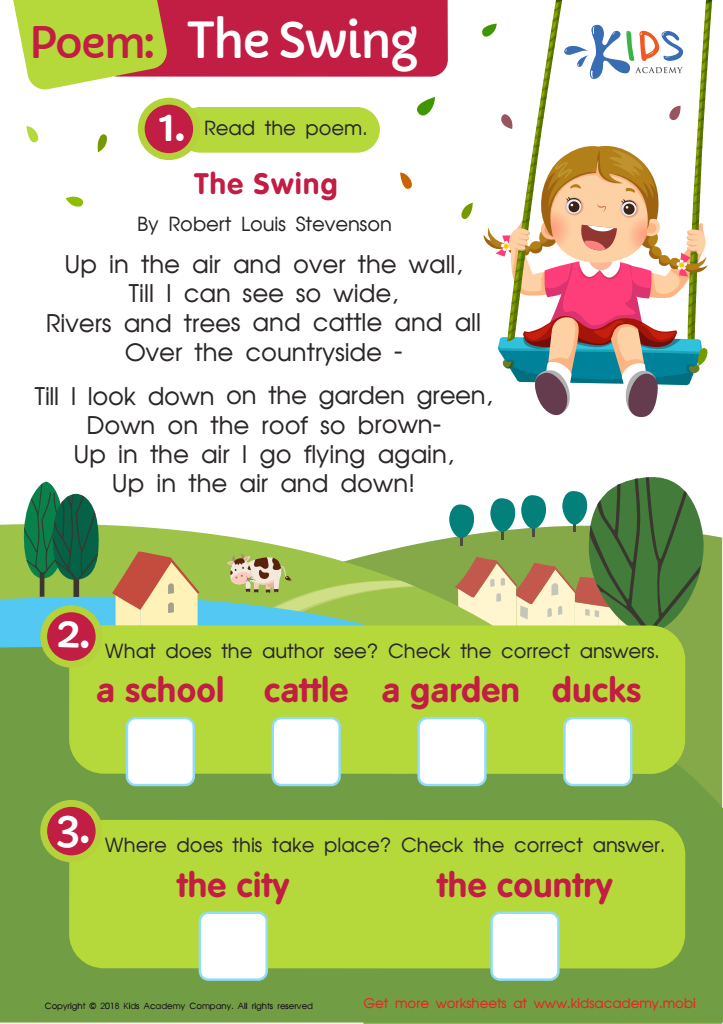

Poem: The Swing Worksheet
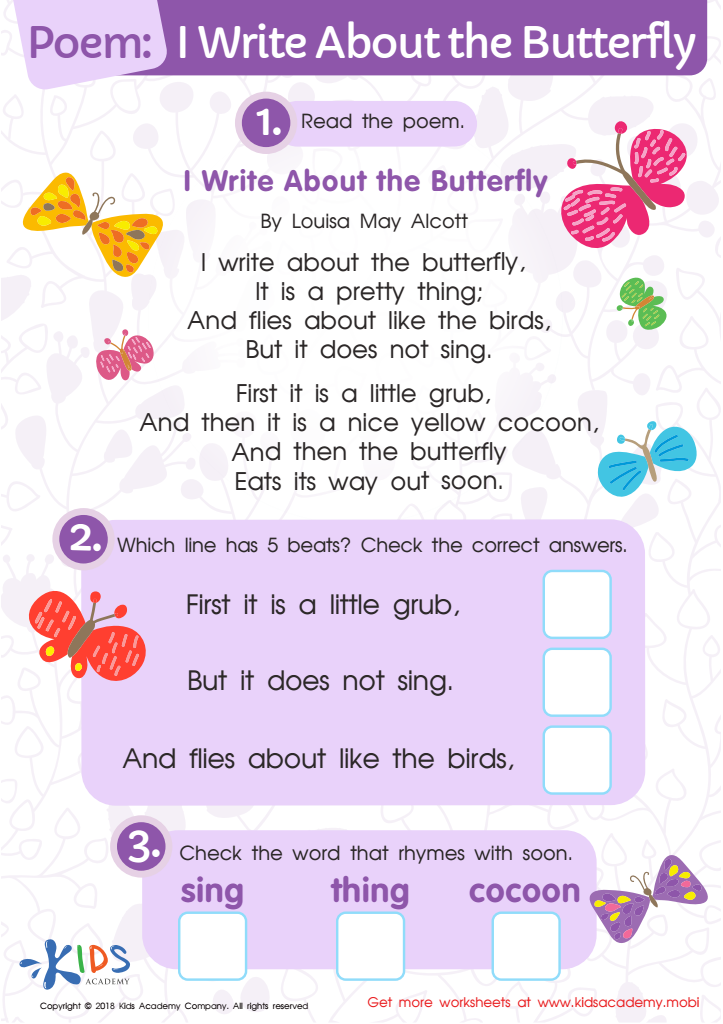

Poem: I Write About The Butterfly Worksheet


Rhymes in Poems Worksheet
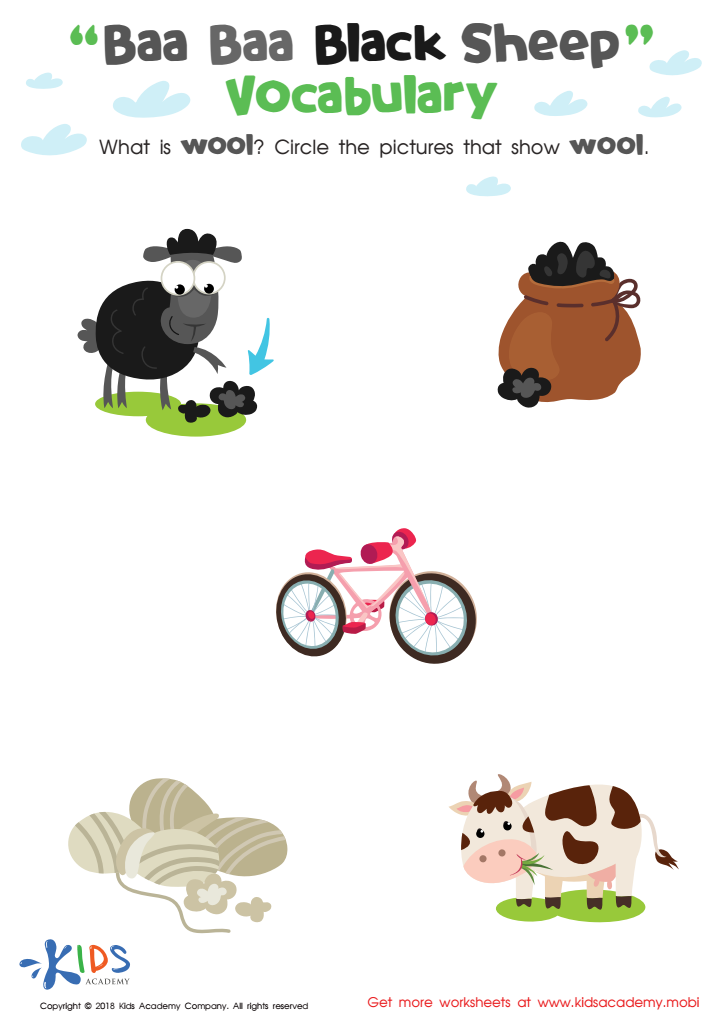

Baa Baa Black Sheep: Vocabulary Worksheet
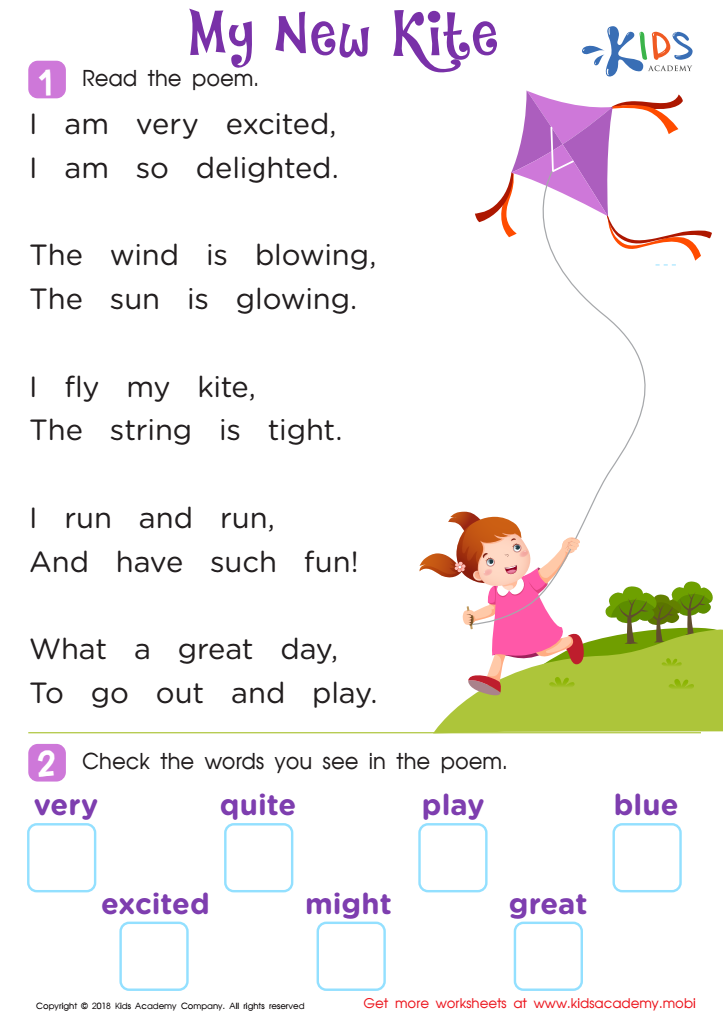

Poem: My New Kite Worksheet
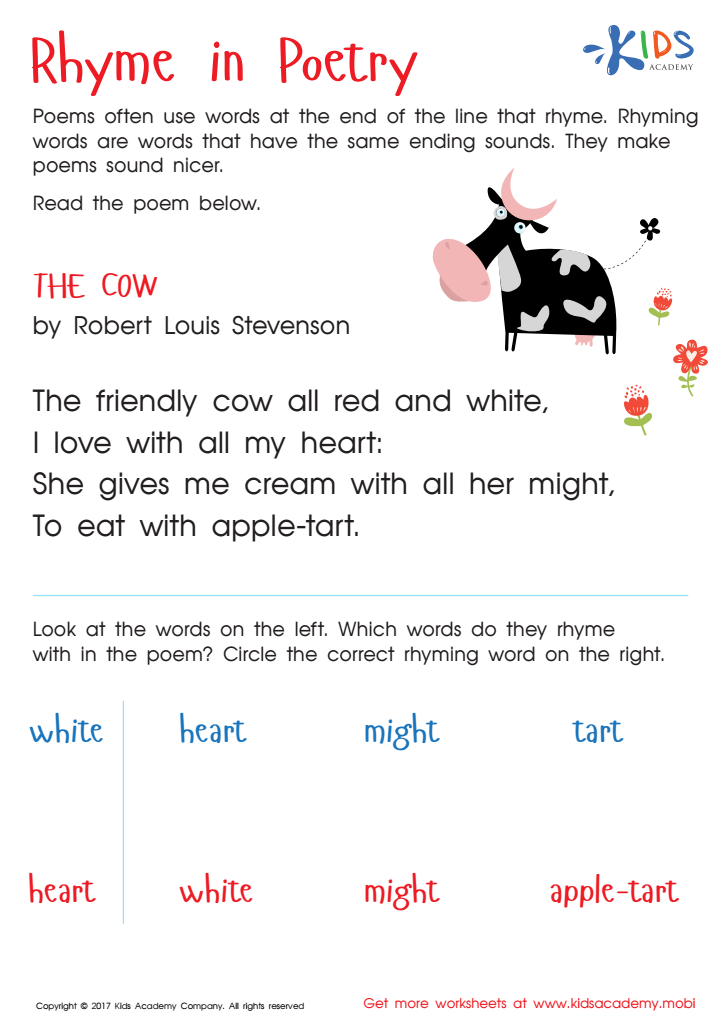

Rhyme In Poetry Worksheet
Parents and teachers should care about normal songs and poems activities for ages 5-8 because these activities play a crucial role in early childhood development. At this age, children are naturally curious and eager to learn, making it an ideal time to introduce them to songs and poems that enhance their language skills, vocabulary, and phonemic awareness. Engaging with music and rhythmic patterns fosters listening skills, encourages repetition, and improves memory retention.
Moreover, songs and poems often contain themes that resonate with children's everyday experiences, emotions, and cultural backgrounds. They are wonderful tools for social and emotional learning, helping children express themselves and understand their feelings. This literary exposure also sparks creativity and imagination, enriching their cognitive abilities.
Additionally, these activities can promote motor skills through clapping, dancing, or using instruments, making learning an enjoyable and interactive experience. They also pave the way for collaborative play, fostering social relationships and teamwork among peers.
Incorporating songs and poems into educational routines can create a joyful and engaging atmosphere, ensuring that learning feels effortless rather than a chore. Ultimately, these activities build a solid foundation for literacy, emotional intelligence, and overall developmental growth in young children.
 Assign to My Students
Assign to My Students














